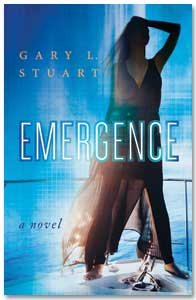When used as a verb, a leak means an accidental loss, usually referring to a liquid or gas through a hole or crack, as in the roof leaked. Leaks seep out, escape or ooze. In the noun usage, a leak is an intentional disclosure of something secret or private. In either usage, ethics is rarely tested, much less talked about.
Leaking something intentionally, especially something secret, always gets talked about, written up, bashed, applauded, or buried. Arguably, America’s four most abominable leaks are the Pentagon Papers, the Watergate Scandal, the Iraq War Logs (WikiLeaks), and Edward Snowden and his PRISM leak. They are not listed in order of criminal conduct, outrage, applause, or historical importance. Each had its punch, its outcry, its widespread harm, and its day in court. However, none were as unexpected as was the draft Supreme Court opinion written by Justice Samuel Alito. Politico published it world-wide on May 2, 2022. It was not merely stunning in a legal and political, terms. It was unfathomable in judicial history.
The leak of Justice Alito’s draft in Dobbs v. Jackson Women’s Health Organization signaled that the court was ready to overturn the 1973 ruling establishing a constitutional right to abortion. The leak rocked the U.S. Supreme Court and spread through every state like a whirlwind. It said that American women would now be deprived of a constitutional right that everyone had taken for granted for almost fifty years. In at least sixteen states and the District of Columbia, access to abortion was a fundamental constitutional right, regardless of the conservative majority’s threat to upend abortion law in the other thirty-four states. It was perfectly clear that this would be a conservative coup and a progressive nightmare. In addition, several states had local Supreme Court precedents protecting abortion rights. That left twenty-two deeply red states where abortion rights would be tightly restricted or completely banned.
This leak undermined confidence in and respect for America’s third branch of government. The Supreme Court had half a handful of leaks in its history. This one would stand as a stain on its integrity, perhaps even more than the blatant political spin it would produce. It was not a legal disagreement; it was a political one. In the other three famous cases, the creators were not bound by oath, high office, presumed honor, or an awareness of the crimes and harm caused by leakers and their supporters.
Nina Totenberg said, “There hasn’t been such a massive breach in modern history. She called it a ‘bomb at the court’ that undermines everything the body stands for internally and institutionally, including its members’ trust in their law clerks and in each other.”[1]
The New York Times headlined the story, “A Leaky Supreme Court Starts to Resemble the Other Branches.”[2] It was not Congress, a virtual sieve. It was not the White House, a routine leaker of high and low motives. And it was not the legal profession bound by confidentiality rules and lower court orders. It was also not part of the scores of intelligence agencies, who couldn’t keep secrets and often “leaked” on purpose. Justice Ruth Bader Ginsburg would have been aghast. She famously said, “Those who know don’t talk. And those who talk don’t know.”[3]
In this leak, the court issued a rare statement the day after Politico published the draft opinion. “Justices circulate draft opinions internally as a routine and essential part of the court’s confidential deliberative work. Although the document described in yesterday’s reports is authentic, it does not represent a decision by the court or the final position of any member on the issues in the case.”[4]
In short order that statement sagged. The leaked opinion was 100% correct and accurately reflected the final position of every justice in the majority.
The June 24, 2022, release of the final U.S. Supreme Court decision ended a woman’s constitutional right to an abortion, at least in federal courts. “The decision, unthinkable just a few years ago, was the culmination of decades of efforts by abortion opponents, made possible by an emboldened right side of the court that has been fortified by three appointees of former President Donald Trump.”[5]
And it put the Court on the low side of a significant majority of Americans who favored preserving Roe. “The decision came against a backdrop of public opinion surveys that find a majority of Americans oppose overturning Roe and handing the question of whether to permit abortion entirely to the states. Polls conducted by The Associated Press-NORC Center for Public Affairs Research and others also have consistently shown about 1 in 10 Americans want abortion to be illegal in all cases. A majority are in favor of abortion being legal in all or most circumstances, but polls indicate many also support restrictions especially later in pregnancy. The Biden administration and other defenders of abortion rights have warned that a decision overturning Roe also would threaten other high court decisions in favor of gay rights and even potentially, contraception.”[6]
What are the ethical imperatives when someone inside the Supreme Court violates their oath of office and breaks every modicum of integrity and trust in the law and the law makers? Not surprisingly, it depends on whether it was a “good” leak, or a “bad” one.
“A good leak is the disclosure of information that expands public understanding of an issue of public interest – without harming anyone. A leak also can be good if it illuminates understanding of an important issue even if it harms someone, as long as the public interest at stake is significant-lives and health are at risk; a crime, such as fraud is being committed; public monies are being misspent.”[7]
“A bad leak is one that does harm and does not aid public understanding of an important public issue. A bad leak is also one that does too much harm as it tries to inform the public regarding an important issue. A leak may be bad if it violates an important commitment or trust.”[8]
No one thinks the Dobbs leak was good. Everyone thinks it was bad. Including Chief Justice John Roberts. He said, “[The leak] a singular and egregious breach of trust and an affront to the Court and the community of public servants who work here. I have directed the Marshal of the Court to launch an investigation into the source of the leak.”[9]
The leak was harmless insofar as the case at hand—Roe v. Wade and Dobbs v. Jackson Women’s Health Organization. But it sent the Supreme Court’s public approval ratings into free fall. “A Gallup poll taken in June before the Court’s decision in Dobbs found that only 25 percent of respondents have “a great deal” or “quite a lot” of confidence in the Court, a historic low. And that’s after nearly a year’s worth of polls showing the Court’s approval in steady decline.”[10]
The leak inevitability caused scholars and doubters alike to guess at what the leakers hoped to achieve by announcing early the court’s decision to overturn Roe v. Wade. On June 24, 2022, SCOTUS officially released its most divisive opinion in fifty years. It overturned Roe v. Wade. The consequences are as yet not fully apparent, other to say that nothing good can come from a court that overturns its own precedent based on religion.
This blog will at some future point assess the ethicality of writing about abortion rather than just leaks about abortion. The fears expressed by the leaks are the reality of the final outcome.
[1] https://www.npr.org/2022/05/03/1096097236/roe-wade-original-ruling-leak
[2] https://www.nytimes.com/2022/05/11/us/supreme-court-leak-roe-wade.html
[3] https://www.nytimes.com/2022/05/11/us/supreme-court-leak-roe-wade.html
[4] Ibid.
[5] https://www.opb.org/article/2022/06/24/supreme-court-overturns-roe-v-wade-states-can-ban-abortion/
[6] https://www.opb.org/article/2022/06/24/supreme-court-overturns-roe-v-wade-states-can-ban-abortion/
[7] https://www.scu.edu/ethics/focus-areas/journalism-and-media-ethics/resources/the-ethics-of-leaks/
[8] Ibid.
[9] https://www.nationalreview.com/the-morning-jolt/the-phantom-hunt-for-the-supreme-court-leaker/
[10] https://www.vox.com/2022/6/25/23181976/case-against-the-supreme-court-of-the-united-states

I am an author and a part-time lawyer with a focus on ethics and professional discipline. I teach creative writing and ethics to law students at Arizona State University. Read my bio.
If you have an important story you want told, you can commission me to write it for you. Learn how.






 I am an author and a part-time lawyer with a focus on ethics and professional discipline. I teach creative writing and ethics to law students at Arizona State University.
I am an author and a part-time lawyer with a focus on ethics and professional discipline. I teach creative writing and ethics to law students at Arizona State University.  My latest novel is Emergence, the sequel to Let’s Disappear.
My latest novel is Emergence, the sequel to Let’s Disappear.  If you have an important story you want told, you can commission me to write it for you.
If you have an important story you want told, you can commission me to write it for you.